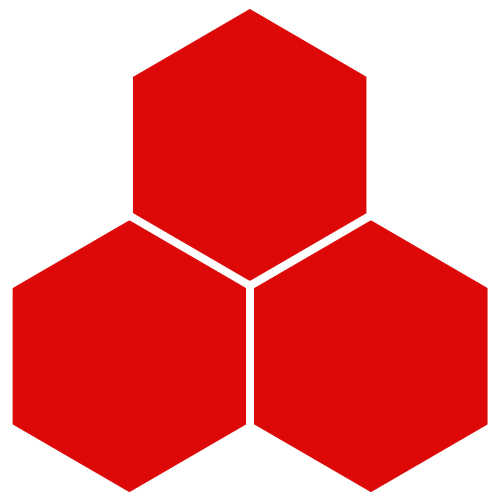Are you considering a major in Computer Science? If yes, you should be aware that Computer science is a challenging major.
However, it’s a great major to study if you are going to be a developer, architect, or analyst, where you can create multiple programs and codes. So, if you find yourself overwhelmed at pursuing this degree, here’s a helpful guide to clarify things.
Is Computer Science Hard?
Computer science is a challenging major to take. It requires students to study computational systems with a deep understanding of programming languages, data structures, and algorithms. Additionally, the degree courses are competitive and require advanced math and statistics classes. Nevertheless, career outcomes and salaries are great for computer science majors who can pursue data management, computer programming, and software development careers.
Let’s take a look at what Computer Science may lead you. Let’s proceed!
1. Study of Computational Systems
Computer science is the study of how computers work, how to program them, and how to use them to solve problems. It incorporates computational systems, computer programming, information science, and computer-related topics.
Several computer science experts pursue professions and responsibilities, including:
- Data Scientist
- Software Engineer
- Systems Analyst
- Developing new software
- Computer System and Cyber Security
This major requires technical and analytical skills to study programming languages, algorithm theories, and computer system architecture.
As reported by the BLS, professionals in this industry make median yearly salaries of,
- Computer and Information Systems Managers – $159,010
- Computer Network Architects – $120,520
- Computer Programmers – $93,000
- Software Developers – $109,020
- Web Developer – $81,320
Additionally, the success of computer science students’ employment depends on their standard of schooling, job experiences, and credentials.
Despite their education level, computer science graduates engage in a field with excellent salary potential and rapid growth.
2. Difficult Major
Computer Science has a record for being a demanding major.
As a result, students are pushed to their limits when completing a computer science degree.
Therefore, one should prepare to spend a great deal of time studying original approaches and applying them in coding projects. It can be challenging for you to stay up with your classmates.
Computer science students must first understand how to program, which calls for a highly systematic and logical strategy for problem-solving. Students who struggle in mathematics generally have to make additional efforts to develop analytical abilities.
Additionally, computer science is a tremendously constructive field of study. In terms of curriculum, this indicates that every subject presented in a given course demands absolute knowledge of all previous coursework.
However, computer science graduates might expect two key factors:
- higher income potential and;
- rapid industry growth
3. Degree Courses

Computer science degrees are obtainable at the associate, bachelor, master, and doctoral levels.
Associate Degree: It generally takes two years for students to complete an associate degree in computer science, which provides a combination of 60 credits.
Bachelor’s Degree: Among full-time students, it takes four years to earn a Bachelor’s Degree in computer science, generally comprising 120–128 units.
Master’s Degree – takes roughly 45 credits to acquire. However, students who are enrolled full-time can often obtain their diplomas in 1.5 to 2 years.
Ph.D. Most coursework and credit criteria require 4-5 years to complete.
Online Degrees – provide further flexibility than traditional credentials.
To be successful in computer science, you must be at ease with technology. Discipline, innovation, and problem-solving skills are also essential for this discipline.
In terms of career, a computer science degree can lead to employment beyond the big tech, such as:
- Healthcare
- Education
- Telecommunications
- Finance
- Automotive
4. Competitive Major
Candidates pursuing degree programs in computer science should also have impressive educational records and high scores on standardized tests. The following will support the application,
- High school diploma
- ACT or SAT results.
- Prerequisites in English, math, foreign languages, natural sciences
- Background in psychology, sociology, or physics
To further grasp what is necessary, you must also learn a programming language, including:
A computer science degree is highly competitive. To truly comprehend every element in the curriculum, students must spend much time on their studies. For example, to study for examinations, write reports, and complete a project, students should consume 2 to 10 hours per week at a minimum.
With high growth and salaries, it is understandable why this industry is so fiercely competitive!
5. IT Certifications and Credentials
A CompTIA study showed that 91% of businesses consider IT certifications significant in the application process.
Meanwhile, here are some of the top IT qualifications that students could obtain,
- Cisco certifications
- CompTIA certifications
- Microsoft certifications
- ISACA certifications
- Adobe Certifications
Every certification has education requirements. You can complete them in person, online, or classroom setting.
The steps include:
Step 1: Select the IT certification you desire.
Step 2: Download and study the practice test questions and exam criteria.
Step 3: Choose from standard study materials and online learning options.
Step 4: Register and spend time for the certification test.
6. Overwhelming Curriculum in Computer Science
In computer science, the following are the principal study areas:
- Artificial intelligence
- Computer systems and networks,
- Database systems
- Numerical analysis
- Programming languages
- Software engineering
In terms of mathematical concepts, students might find it intimidating to acquire more complex ideas, such as calculus or linear algebra.
Students also encounter developing programs requiring intense attention to even the tiniest details. Maintaining close attention to a significant number of minor elements over an extended period is difficult.
Computer Science majors must possess excellent memory to keep track of the details. They need to be able to recall a range of information, such as:
- The language’s syntax
- The library of prewritten capabilities that are at their discretion
- Past solutions to challenges that one can implement to the prevailing one
Generally, it is challenging for students to master computer science, considering writing code requires a large amount of memorization and attention to detail.
7. Extensive Learning

Students engage in hands-on activities throughout the course and produce a project that may incorporate the following:
- Using MS Office and both Windows and Linux computer systems
- C programming language principles, as well as an introduction to object-oriented programming
- Applying algorithms
On the other hand, the guideline for each CS programming course is that
- it will help if you put in the same time commitment as for all of your lectures,
- plus an extra 15-20 hours per week to accomplish programming projects, labs, and
- comprehend programming demonstrations.
Additional practical training for students includes:
- The design phase
- Coding
- Syntactic error detection and correction
- Debugging
8. Mathematical Coursework
Competence in higher mathematics is also necessary if one wishes to study in the computer science industry.
As was already noted, studying computer science will necessitate that you deal with a significant amount of advanced math, such as calculus, algebra, integral calculus, and analytics.
Alumni advise considering these traits to evaluate if computer science is the perfect major for you:
- If you don’t hate math
- If you enjoy resolving issues
- If you possess creativity
Overall, a computer science major is a comparable cognitive ability that generally takes 4-5 courses to acquire.
9. Study Life Balance
As mentioned above, one of the disciplines where it is critical to keep studying throughout the semester, is computer science.
There is too much to study on a particular day, and the projects take more work to finish at the last moment. Therefore, if you want to excel as a computer science student, give yourself a favor and put in the work during the academic semester.
However, despite all the daunting tasks and projects, students still manage to live life outside of studying computer science.
They know for themselves that this major is always intimidating since you’ll need to study harder, research extra, and work harder.
But they always make sure to enjoy it too, like participating in social activities, including getting together with friends, going to a club, or on tour, and engaging in social activities.
10. Coding Internships
Internships in computer science differ in form and are typically available in a broad range of fields.
Responsibilities for interns may include:
- Taking part in meetings with management, staff, and clients
- Evaluating applications and software
- Troubleshooting issues between hardware and software
- Assisting in the construction of computer programs
Many students obtain internships through:
- School career counselor
- Online job platforms
- Indeed
Some students also gain experience by being given a real-world Ruby on Rails project. For example, in their second year of study, PHP and MySQL were the main building blocks.
Some of their duties involve:
- Working with a large codebase
- Writing maintainable code
- Using a version control system
Pro Tip: You must develop your writing skills more than simply coding. A good programmer is necessary for success, but writing skills are essential. As you study computer science, invest the time to strengthen your technical and business writing capabilities.
11. Academic Fees and Scholarships

In the USA, more than 100 universities offer a 4-year bachelor of computer science degree program where the entire curriculum costs anything from $30,000 to $80,000, depending on various factors.
There are various scholarships and funding support available to students.
12. Living Expenses and Other Costs
As a computer science student, you must set aside money for living expenses while in university.
Rent from residences, transit, other expenditures, groceries, wifi, and meals represents most of a student’s living expenses.
A summary of typical living costs in the USA includes,
- Apartment housing with utilities ($17,200/year)
- Food ($6,500/year)
- Dormitory housing ($11,914/year)
- Food for dormitory residents ($2,487/year)
- Books and supplies ($900/year)
- Miscellaneous ($6,700/year)
Additionally, the following tools and supplies are also necessary for students studying computer science:
- Laptop
- Calculator
- Clean Code (Book)
- Pragmatic Programmer (Book)
- Multiple USB Flash Drives
- Dual Monitors
Here are some additional charges to consider if you’re an international student studying computer science:
- SEVIS (Student and Exchange Visitor Information System) ($350)
- Visa Application Fees ($160)
- Health Insurance ($500-1000/year)
- Application Fee ($65-85)
- Counseling Fees ($340)
13. Career Growth
According to BLS, over this decade, the demand for computer science graduates will climb by 33% yearly.
Associate degree holders gain employment primarily as web developers or computer support specialists. At the same time, more computer science professions in software development, database management, and computer programming are accessible with a bachelor’s degree.
After graduation, CS students may apply to some of the top American companies, mainly:
- MasterCard
- Intel
- Deloitte
- Microsoft
- PayPal
- Netflix
Top-paying locations for computer science graduates usually include California, Texas, and Virginia. On the other hand, New Jersey, Rhode Island, and Maryland often provide substantial earnings for computer network architects.
If you have pursued a career in software development, you can earn a high-average compensation from states like:
- Washington
- California
- New York
Several occupations are expected to increase significantly due to the high demand for competent computer science professionals.
To learn more, you can also see our posts on Mathematics, Information Technology, Physics, C Programming, Data Analytics, and Cyber Security.
Conclusion
Computer science is the future of tech and the future of the world. It is a challenging field and requires a lot of practice. But if you work hard and keep an open mind, you can succeed in computer science similarly as you did with your other subjects before.
However, many resources are out there that help somebody learn the basics and become acquainted with the curriculum.
Ultimately, whether computer science is hard might depend on you. As long as you’re up for a challenge, computer science shouldn’t faze you; it should only motivate you to keep moving forward.

